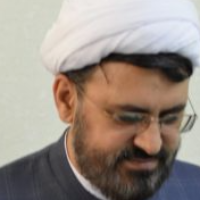Wittgenstein, Miracle of Being, Wonder and Encounter with Language
Probably the first thing that every scholar in Philosophy learns about Wittgenstein is the fact that he developed two approaches regarding language in during his life and philosophical thinking, and accordingly nobody hesitates to call him a philosopher of language (in the sense of being as a philosopher whose main concern is the analysis and exposition of language). But the fundamental necessity that made Wittgenstein to do inquiry about language has not been considered yet. The aim in present paper is to deal with this neglected issue in Wittgenstein` s though and the writes attempt to clarify that the ground of Wittgenstein’s questioning about language and also the origin of his special way of thinking is the fundamental experience of wonder on being and seeing the beings as miracles. Wittgenstein encounters the borders of language and experiences the linguistic character of human being (or his being-in-the-language) so that he can say: The existence of language is the language of existence. Our main sources for explanation of this experience will be “Notebooks”, “Tractatus” and “A Lecture on Ethics”.
Wittgenstein , World , language , Miracle , Wonder
-
Wittgenstein V G. E. Moore A comparative study between Wittgenstein and Moore about the two concepts of knowledge and certainty
Mohammad Saied Abdollahi, *
Journal of Epistemological Research, -
Examining Avrom Stroll's point of view about Wittgenstein's two different understandings of the foundations of certain beliefs
Mohammad Saied Abdollahi, *
Journal of Philosophical Investigations,




